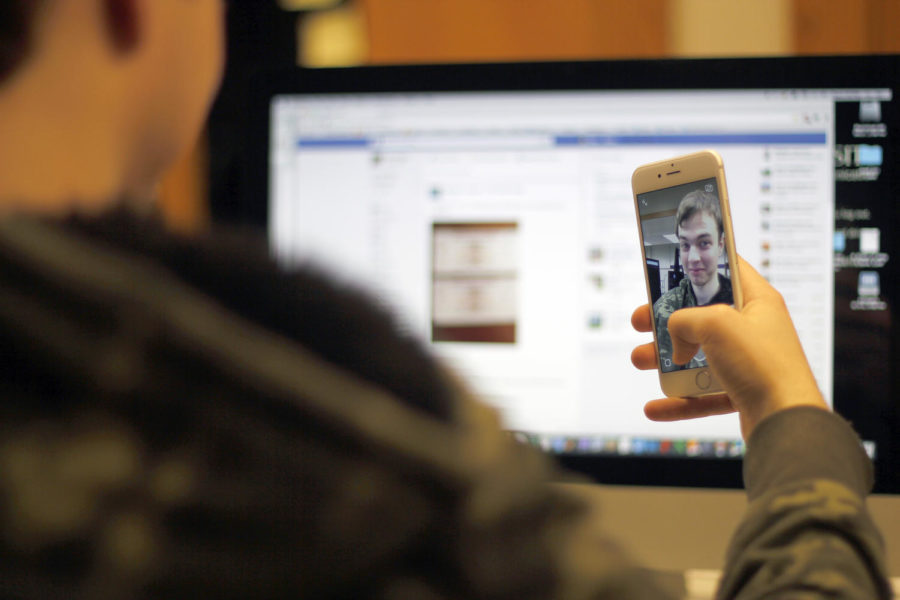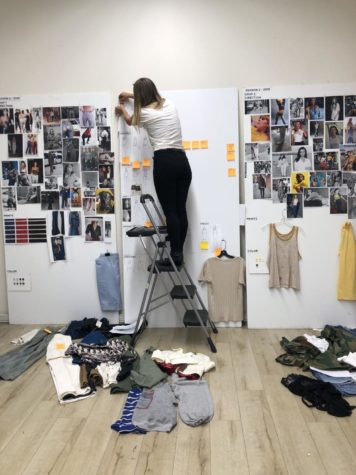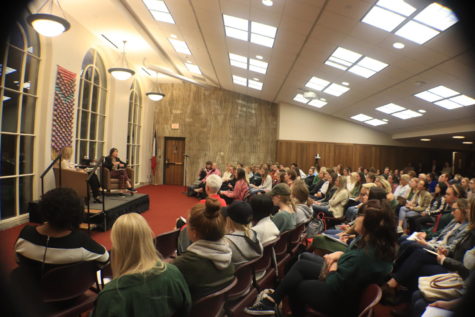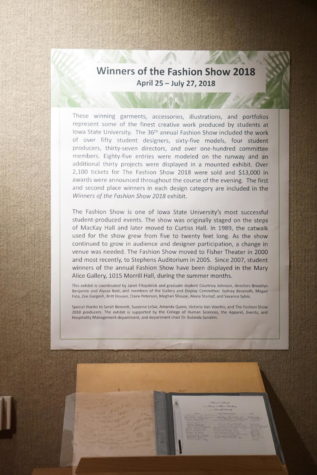Social media and social perception present both advantages, disadvantages
When social media puts pressure on people to look and act certain ways, it can alter perceptions of how people view themselves.
January 14, 2015
Private lives have become a thing of the past as students begin to derive their self-worth and affirmation from “likes” and feedback from social media postings.
Being hidden behind a screen not only allows users the ability to post perfectly edited photos or statements they may not say in person, but also opens the door for cyber bullying and renders the question of whether social media is a healthy medium for students to express themselves or a another source of added stress and lowered self-confidence.
According to MediaBistro.com, 67 percent of Americans actively use a social media-networking site, with Facebook, Twitter and Instagram being the most used by college students.
Studies have found that users only post their best moments on social media purposefully leaving out “the bad” to create a perfect “cyber-self” on these channels of communication. However, for most, this portrayed image to the world is only half of the story.
This façade has been linked to what is now known as “smiling depression,” a term used to describe people who are depressed but do not appear so, according to psychcentral.com.
When a person scrolls through Instagram and only sees posed “selfies” of others that are edited to hide any trace of a flaw and racking up likes, it can start to determine their self-worth.
“You look through tons of pictures, and start to believe you aren’t pretty enough, or thin enough, and that just sucks,” said Hanna Giegerich, sophomore in psychology.
Then comes the constant need to keep up with the pack and bring in as many likes or retweets as everyone else.
“There have been times where I’ve thought poorly of myself because I see others getting more likes than me, as silly as that sounds,” said Jenna Pattee a sophomore in child and adult family services.
Patricia Greenfield, a UCLA developmental psychologist, found that young people feel socially supported by having large networks of online friends with some never being seen face-to-face.
Due to the incline in cyber relationships and decline in personal conversation, it is easy to feel the need to be constantly updated to news feeds on social-media platforms in order to “stay connected.”
The University of Salford in the UK recently conducted a study that found 50 percent of people felt their self-esteem go down while using social media. Another study conducted by the University of Gothenburg in Sweden also found that as Facebook interaction increased self-esteem decreased.
However, many students have found the positives in social media outlets, despite causing estranged relationships and lowered self-esteem in some users.
Andrew Holmes, sophomore in industrial technology, believes social media can be a self-esteem booster. “Knowing there is a group of individuals that follows me and appreciates what I post does make things better.”
Pattee agrees with Holmes. “If you do get the amount of likes you expected or receive a lot of re-tweets your self-esteem goes up.”
In contrast to many of the studies showing a correlation between lowered self-esteem and social media use, the nonprofit group Common Sense Media found one in five teens said social media has made them more confident.
These findings are said to be because of the positive comments many ‘selfie’ posts receive.
As of now, there is no definitive answer to whether or not social media is more damaging or beneficial to students’ emotional health. However, users are encouraged to draw conclusions from personal experience and familiarize themselves with both the benefits and downfalls of social media platforms and evaluate social media’s effects on their mental health.

















